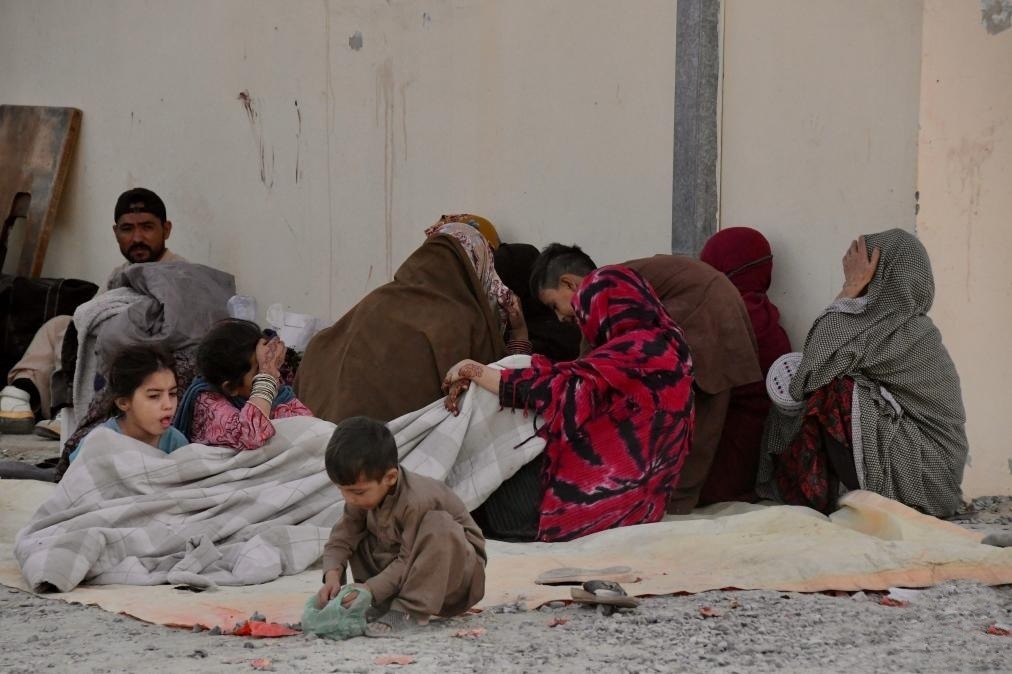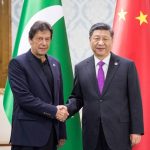Philippine Transportation Secretary said that China appeared to have lost interest in the three railway projects that President Rodrigo Duterte mediated…reports Asian Lite News
The Philippines will no longer look to China for financial assistance for three railway projects that President Rodrigo Duterte mediated, The Diplomat reported.
Philippine Transportation Secretary Jaime Bautista, while speaking to a forum of German and Philippine businesspeople in Manila on Wednesday said that China appeared to have lost interest in the projects.
The decision, according to Bautista, was not influenced by the recent escalation of hostilities between China and the Philippines in the South China Sea, which culminated in collisions between Chinese and Philippine ships last weekend as they attempted to replenish supplies for troops positioned at Second Thomas Shoal in the Spratly Islands.
Writing in The Diplomat, Sebastian Strangio, the Southeast Asia editor at The Diplomat, noted that the first of the projects was a 142-billion-peso (USD 2.5 billion) railway running for 380 kilometers from Calamba, a city just south of Manila, to Bicol province, on the southern end of Luzon, and the second was an 83 billion peso (USD 1.45 billion) 100-kilometer commuter rail line in Mindanao in the southern Philippines.
Whereas, the third – and most symbolic – was a 71-kilometre freight railway connecting Subic Bay Freeport Zone and Clark Freeport Zone, formerly the Subic Bay Naval Station and Clark Air Base, two of the nerve centres of US military power in the Asia-Pacific. This project was slated to cost 51 billion pesos (USD 896 million).
The three rail projects were among the outcomes of Duterte’s “Build, Build, Build” infrastructure development initiative, which mostly depended on utilising China’s Belt and Road Initiative’s (BRI) then-seemingly limitless financial resources, Strangio opines.
Similar to Duterte’s China-friendly policies, however, the projects were never without controversy. Opponents pointed to the comparatively high interest rates as well as the strategic context of China’s continuous encroachment into the South China Sea territory that the Philippines claims, he added.
In July 2022, a month after President Ferdinand Marcos Jr. took office, Cesar Chavez, the transportation undersecretary for railways, stated that funding for these projects was “considered cancelled” because China had invested in preliminary studies for the projects but had not provided a shortlist of potential contractors the previous month, The Diplomat reported.
There is little surprise that these three projects have stalled. Despite their eye-catching price tags, few of the big-ticket infrastructure projects that Duterte agreed with China during his time in office tenure have eventuated, Strangio opines.
The opponents of Duterte’s pro-China shift, which saw him minimise Philippine claims in the South China Sea, even a 2016 favourable international arbitration verdict, in order to obtain Chinese financing under the BRI, appear to have been justified by this.
Beijing may have opted to shelve the projects in expectation of political pushback from the Marcos regime, Strangio writes in The Diplomat.
It might also be a reflection of Chinese banks’ waning enthusiasm to support large-scale infrastructure projects in high-risk areas, he added.
The Philippines’ multicentric political structure and copious amounts of red tape make it difficult to build large-scale infrastructure there, as China discovered during a previous unsuccessful railway project during the Arroyo administration. This is another possible contributing factor.
Last week, Philippines had summoned the Chinese ambassador after two near collisions between Chinese and Filipino ships over the weekend in the disputed South China Sea.
The Department of Foreign Affairs (DFA) had summoned Chinese envoy after Chinese vessels hit a resupply boat contracted by the Philippines armed forces and a Philippine coast guard ship in the Spratly Islands chain in the West Philippine Sea on October 22 morning.
The incidents took place near Second Thomas Shoal, which lies within Manila’s Exclusive Economic Zone (EEZ), as the Philippines tried to resupply sailors on the Sierra Madre, the navy transport ship that Manile grounded on the Second Thomas Shoal in 1999 and manned it with Filipino marines to enforce the Philippines claims to the area.
One of the Philippines’s boats was damaged in the incident.
Philippines called China’s move “provocative, irresponsible and illegal” and said it “imperiled the safety of the crew” of the Philippine boats, the National Task Force for the West Philippine Sea, as reported by CNN.
President Ferdinand Marcos Jr has directed the Philippine Coast Guard to investigate the collision between Chinese and Philippine vessels in Second Thomas Shoal also known as the Ayungin Shoal, the Inquirer reported. (ANI)














